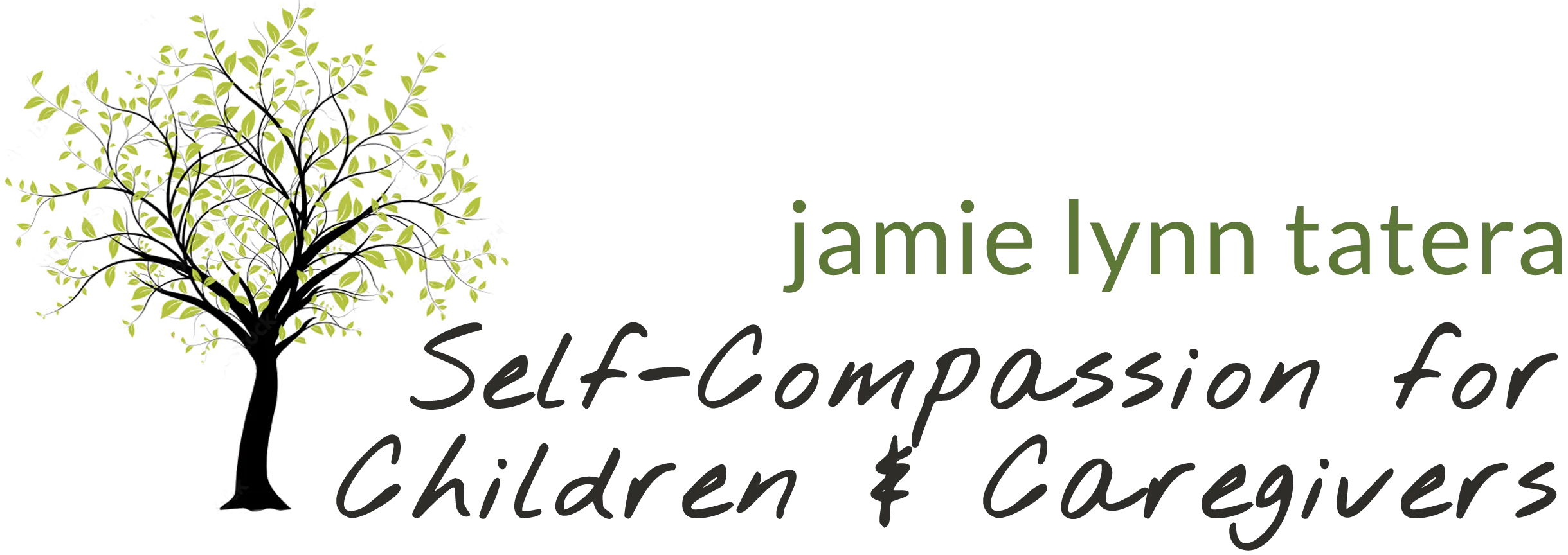Comics and Activities for Your Inner Child
Hello Friends!
I’m excited to share this article that I wrote for Rick Hanson’s Wise Brain Bulletin on the Healing Power of Acceptance. So needed!
The Healing Power of Acceptance
Imagine the following: There is a lot of traffic, and you arrive late for an appointment; Your flight has been delayed, and you miss your connecting flight; You (or your kids) get sick…again! These are all circumstances that call for moment-to-moment acceptance. And then there are more challenging conditions that call for ongoing acceptance: political unrest, chronic health problems, and financial systems beyond our control.
Acceptance can be one of the hardest things to cultivate. It can be hard for adults to face difficult situations and feelings, and it’s especially hard for kids. As a kid, there are so many things you cannot control, and adults make a lot of your decisions. And just how can we accept things that we don’t approve of?
In the context of mindfulness, acceptance does not mean that we agree with or condone what is happening. Rather, acceptance involves nonjudgmentally acknowledging that an experience is occurring. When we are able to understand and tolerate that things don’t always go as we wish, we are more able to respond adaptively moving forward.
Even though meeting reality with mindful acceptance is helpful, it is not always easy. Resistance is a natural response to encountering situations that we dislike. Even an amoeba moves away from a toxin in a petri dish! But too much resistance causes unnecessary suffering. As a mindfulness and self-compassion teacher for adults and youth, it is my job to help kids, teens, and adults learn to meet challenging circumstances with a balance of awareness, acceptance, and empowered action.
This article includes excerpts from the Mindfulness and Self-Compassion Workbook for Kids, Volume 1. The workbook invites kids to go on a quest, and Acceptance is one of 16 lands that children travel through. Please tap into your inner child and enjoy some lessons that can help you move into the hammock of acceptance.
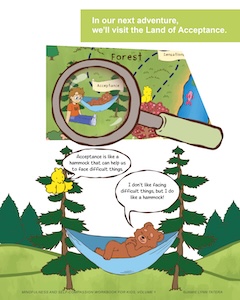
Humor is a great friend to bring along on the journey of acceptance. Life can be hard, and laughter can make difficulties easier to bear (pun intended!). In my work with kids, I juxtapose humor with life lessons.
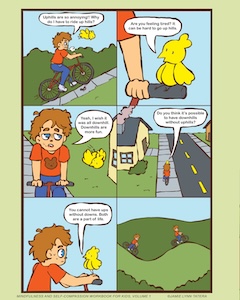
Common Humanity
A tenet of many spiritual traditions is an understanding that suffering is universal, but the phrase, “suffering is a part of life” can be challenging for some adults and kids. More accessible phrases that convey a similar idea include:
Ups and downs are a part of life.
Imperfection is a part of life.

Remembering that everyone has ups and downs can help us feel more connected during challenging moments. We can be mindful of our resistance to difficult feelings, and we can remind ourselves that it is human to feel as we feel. Even the struggle with acceptance itself is one that we all share. Remembering that we are not alone can give us a sense of “common humanity” when things go wrong, which is an important element of self-compassion.
Thought Distortions
The way we think about our difficult moments can make a big difference in how we feel. Cognitive distortions like black-and-white thinking and should-or-shouldn’t thinking can make a difficult situation even more challenging. In my work with kids, I refer to cognitive distortions as “mind muddles.” The below pages highlight some common mind muddles that can compound struggles and make it harder to accept the present moment.
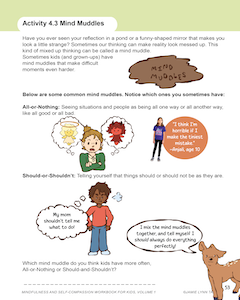
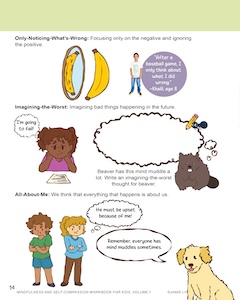
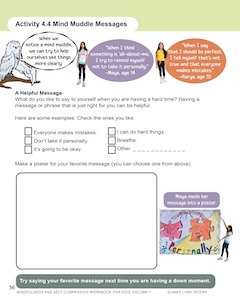
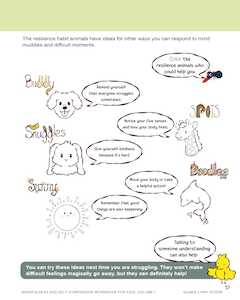
Resilience Habits
Sometimes our mind is so riddled with resistance and difficult thoughts that acceptance feels out of reach. Elements of self-compassion (and resilience habit animals) can help us come back to center:
Mindfulness (aka “Spots”)
Mindfulness meets us just where we are. If we are in a state of non-acceptance, we can be mindful of that, too. We can be mindful of all our thoughts and feelings as well as our five senses.
Common humanity (aka “Buddy”)
Whatever we are experiencing is human. We belong to humanity.
Self-Kindness (aka “Snuggles”)
We can soothe ourselves with words of acceptance and care, and we can motivate ourselves with supportive messages.
Kind Actions (aka “Doodles”)
Sometimes the choice is not whether or not we will hurt, but rather what we will do while we are hurting. We might call a friend, go for a walk, have a cup of tea, read a book, or attempt to solve a problem. Taking action in the presence of struggle is a powerful form of kindness.
Notice the Good (aka “Sunny”)
The sun is still present even when it’s hiding behind a cloud. When the time is right, we can help ourselves to notice and appreciate what is good. Remember that goodness and struggle can coexist side by side.
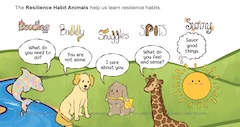
Self-compassion includes both tender acceptance of ourselves and our feelings as well as strong actions to try to alleviate suffering. The tender and strong sides of self-compassion are complementary. We can create change most effectively when we first bring mindful awareness to the moment and acknowledge that in this moment, things are exactly as they are. Mindfulness and self-compassion can help us move through resistance and struggle into the land of acceptance.
ABOUT THE AUTHOR

JAMIE LYNN TATERA is a certified educator, author, and curriculum designer with a passion for helping children and their caregivers become more self-compassionate. She is the creator of the Mindfulness and Self-Compassion for Children and Caregivers (MSC-CC) program, a parent-child adaptation of the research-based Mindful Self-Compassion (MSC) training by Drs. Kristin Neff and Christopher Germer. Jamie Lynn trains educators, families and clinicians in her resiliency programs, and she has a wealth of experience teaching mindfulness and self-compassion to adults, children, teens, and families. The pages from this article are excerpted from her new book, Mindfulness and Self-Compassion Workbook for Kids, Volume 1. Visit https://jamielynntatera.com to learn more.
______________________________________
I hope you enjoyed our journey through the fourth adventure of volume 1 of my workbook for kids! I’ve heard from many adults that they find the workbook personally beneficial. And members of my paid community are moving through the workbook together. It’s a great resource for kids and grown-ups alike!

Acceptance can be hard, but it’s the starting point for cultivating equanimity and taking skillful action.
Wishing you light, love, and equanimity,
Jamie Lynn
